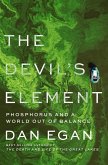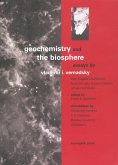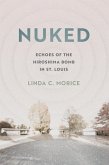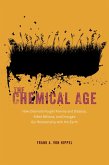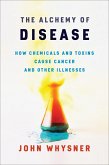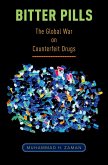In "Silent Suffering: Impact of Pesticides on Wildlife Populations," we delve deep into the hidden and often overlooked consequences of pesticide use on our planet's delicate ecosystems. This comprehensive exploration sheds light on the detrimental effects that pesticides have on a wide range of wildlife species, from the tiniest pollinators to majestic birds and vital aquatic organisms.
The book is structured to provide a holistic understanding of the issue, starting with an in-depth analysis of how pesticides, designed to protect crops, inadvertently harm non-target species. Through detailed research and poignant case studies, readers will gain insight into the mechanisms through which these chemicals disrupt ecosystems, leading to population declines, reproductive issues, and biodiversity loss.
Key Themes Explored:
Pollinator Decline: Discover the critical role pollinators like bees and butterflies play in our ecosystems and how pesticides threaten their existence, leading to broader implications for food security and plant reproduction.
Avian Impact: Examine how pesticides reduce insect populations, a primary food source for many bird species, resulting in declining bird numbers and diversity.
Amphibian Vulnerability: Understand why amphibians, with their permeable skin and reliance on aquatic habitats, are particularly susceptible to pesticide exposure, leading to alarming rates of developmental and reproductive issues.
Aquatic Ecosystem Disruption: Learn about the pathways through which pesticides enter water bodies and their devastating effects on fish, invertebrates, and plant life, disrupting entire aquatic ecosystems.
The book doesn't just outline the problems but also offers hope by exploring alternative practices and solutions. Key chapters are dedicated to sustainable agricultural practices, showcasing successful initiatives worldwide that minimize pesticide use. Additionally, the book highlights the importance of education and advocacy in driving change, providing a roadmap for individuals, communities, and policymakers to transition towards a more sustainable and wildlife-friendly approach to agriculture.
"Silent Suffering: Impact of Pesticides on Wildlife Populations" is a clarion call to action for anyone concerned about the environment and wildlife conservation. It emphasizes the urgent need for a collective effort to raise awareness, implement sustainable practices, and advocate for policies that protect our natural world. By offering a blend of scientific analysis, real-world examples, and actionable solutions, this book aims to inspire and empower readers to join the movement towards a pesticide-free future, ensuring the health and diversity of wildlife for generations to come.
Whether you are an environmental scientist, a concerned citizen, an educator, or a policymaker, this book provides valuable insights and practical guidance on addressing one of the most pressing environmental issues of our time. Join us in uncovering the silent suffering caused by pesticides and take part in the journey towards a sustainable and thriving ecosystem.
The book is structured to provide a holistic understanding of the issue, starting with an in-depth analysis of how pesticides, designed to protect crops, inadvertently harm non-target species. Through detailed research and poignant case studies, readers will gain insight into the mechanisms through which these chemicals disrupt ecosystems, leading to population declines, reproductive issues, and biodiversity loss.
Key Themes Explored:
Pollinator Decline: Discover the critical role pollinators like bees and butterflies play in our ecosystems and how pesticides threaten their existence, leading to broader implications for food security and plant reproduction.
Avian Impact: Examine how pesticides reduce insect populations, a primary food source for many bird species, resulting in declining bird numbers and diversity.
Amphibian Vulnerability: Understand why amphibians, with their permeable skin and reliance on aquatic habitats, are particularly susceptible to pesticide exposure, leading to alarming rates of developmental and reproductive issues.
Aquatic Ecosystem Disruption: Learn about the pathways through which pesticides enter water bodies and their devastating effects on fish, invertebrates, and plant life, disrupting entire aquatic ecosystems.
The book doesn't just outline the problems but also offers hope by exploring alternative practices and solutions. Key chapters are dedicated to sustainable agricultural practices, showcasing successful initiatives worldwide that minimize pesticide use. Additionally, the book highlights the importance of education and advocacy in driving change, providing a roadmap for individuals, communities, and policymakers to transition towards a more sustainable and wildlife-friendly approach to agriculture.
"Silent Suffering: Impact of Pesticides on Wildlife Populations" is a clarion call to action for anyone concerned about the environment and wildlife conservation. It emphasizes the urgent need for a collective effort to raise awareness, implement sustainable practices, and advocate for policies that protect our natural world. By offering a blend of scientific analysis, real-world examples, and actionable solutions, this book aims to inspire and empower readers to join the movement towards a pesticide-free future, ensuring the health and diversity of wildlife for generations to come.
Whether you are an environmental scientist, a concerned citizen, an educator, or a policymaker, this book provides valuable insights and practical guidance on addressing one of the most pressing environmental issues of our time. Join us in uncovering the silent suffering caused by pesticides and take part in the journey towards a sustainable and thriving ecosystem.
Dieser Download kann aus rechtlichen Gründen nur mit Rechnungsadresse in A, B, CY, CZ, D, DK, EW, E, FIN, F, GR, H, IRL, I, LT, L, LR, M, NL, PL, P, R, S, SLO, SK ausgeliefert werden.



